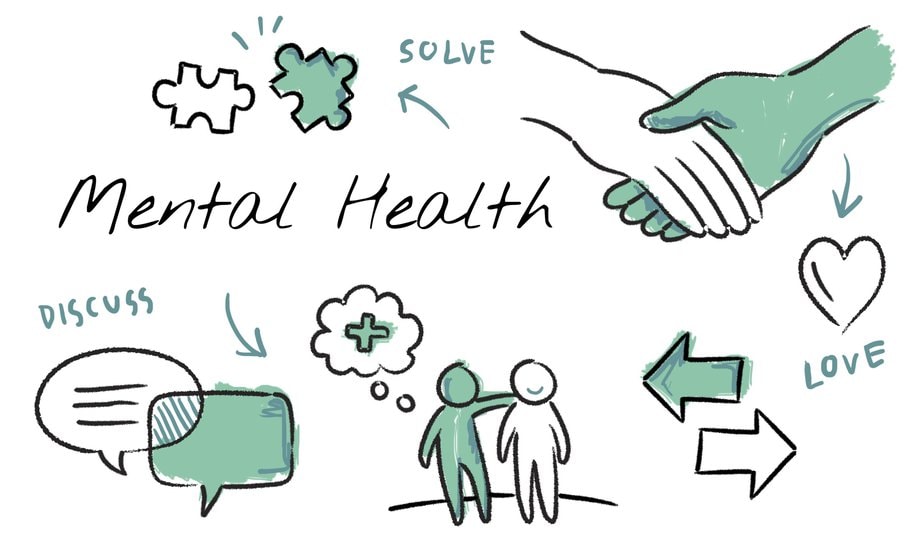Why Does Medicaid Cover Mental Health Services

Do you ever wonder why Medicaid covers mental health services? Well, the answer lies in Medicaid’s commitment to your overall well-being. By addressing the prevalence of mental health issues, reducing stigma, and promoting access to care, Medicaid aims to improve your overall health outcomes.
It understands the importance of early intervention and prevention, and strives to support vulnerable populations. Through collaboration with community-based mental health providers, Medicaid is dedicated to serving you and ensuring your mental health needs are met.
Key Takeaways
- Medicaid recognizes that mental health is an essential part of overall well-being and promotes a comprehensive approach to healthcare.
- Medicaid ensures access to therapy, counseling, psychiatric medications, and inpatient mental health treatment, prioritizing the inclusion of mental health services.
- Medicaid addresses the lack of insurance coverage for mental health by providing coverage and reducing stigma through public education campaigns and program expansion.
- Medicaid promotes early intervention and prevention through education, regular screenings, advocacy, and open conversations, leading to better outcomes for mental health issues and overall health improvement.
Medicaid’s Commitment to Holistic Healthcare
Medicaid demonstrates its commitment to holistic healthcare by prioritizing the inclusion of mental health services. Through its patient-centered approach, Medicaid recognizes that mental health is an integral part of overall well-being. By providing coverage for mental health services, Medicaid ensures that individuals can access the care they need to achieve optimal health and wellness.
This integrative care approach acknowledges the interconnectedness of physical and mental health, recognizing that both must be addressed to achieve holistic well-being. Medicaid understands that serving others means addressing the whole person, not just their physical ailments. By incorporating mental health services into its coverage, Medicaid promotes a comprehensive approach to healthcare that recognizes the importance of mental well-being in achieving overall health.
Through its commitment to holistic healthcare, Medicaid strives to support individuals in their journey towards wellness and fulfillment.
Addressing the Prevalence of Mental Health Issues
To address the prevalence of mental health issues, Medicaid offers coverage for a wide range of services aimed at supporting individuals in their mental well-being. This commitment to mental health services availability reflects Medicaid’s dedication to serving those in need.
Here are four ways in which Medicaid addresses the prevalence of mental illness:
- Access to therapy and counseling: Medicaid ensures that individuals have access to licensed mental health professionals who can provide therapy and counseling services. This allows individuals to receive the support they need to navigate their mental health challenges.
- Coverage for psychiatric medications: Medicaid covers the cost of medications prescribed for mental health conditions. This ensures that individuals can afford the necessary medications to manage their symptoms and improve their overall well-being.
- Support for inpatient mental health treatment: Medicaid provides coverage for inpatient mental health treatment, including hospital stays and residential treatment programs. This ensures that individuals with severe mental health issues can receive the necessary intensive care and support.
- Prevention and early intervention services: Medicaid covers preventive measures and early intervention services to help identify and address mental health issues before they become more severe. This includes screenings, assessments, and early intervention programs aimed at supporting individuals in maintaining good mental health.
Reducing Stigma and Promoting Access to Care
Accessing mental health care can be challenging due to the stigma surrounding mental illness and limited availability of services. However, efforts are being made to reduce this stigma and improve access to care. By promoting awareness and education, we can help reduce the negative perceptions associated with mental health issues. Additionally, increasing the availability of mental health services and expanding coverage through programs like Medicaid can make care more accessible to those in need.
To further illustrate the importance of reducing stigma and improving access, consider the following table:
| Challenges | Solutions | Benefits |
|---|---|---|
| Stigma surrounding mental illness | Public education campaigns | Increased acceptance and understanding |
| Limited availability of services | Expansion of mental health programs | Greater access to care |
| Lack of insurance coverage | Medicaid coverage for mental health | Financial support for treatment |
Promoting Early Intervention and Prevention
By promoting awareness and education, you can take steps towards promoting early intervention and prevention of mental health issues. Here are four ways you can make a difference:
- Educate yourself: Learn about the signs and symptoms of mental health conditions, as well as the risk factors and protective factors. This knowledge can help you recognize early warning signs and intervene before the situation worsens.
- Promote mental health screenings: Encourage regular mental health check-ups, just like you’d for physical health. Early detection of mental health issues can lead to earlier intervention and better outcomes.
- Support mental health initiatives: Advocate for increased funding and resources for mental health programs. By supporting initiatives that focus on prevention and early intervention, you can help create a healthier and happier community.
- Talk about it: Break the silence surrounding mental health by having open and honest conversations. By sharing your own experiences or simply lending a listening ear, you can help reduce the stigma and encourage others to seek help when needed.
Improving Overall Health Outcomes
When it comes to improving overall health outcomes, Medicaid’s coverage of mental health services plays a crucial role. By ensuring accessibility to mental health care, individuals can receive the support they need to address their mental health concerns, leading to better overall health outcomes.
Additionally, Medicaid’s holistic approach to healthcare recognizes the interconnectedness of mental and physical health, allowing for comprehensive and integrated care.
Furthermore, by providing preventive care services, Medicaid helps individuals proactively manage their mental health, preventing the development of more severe conditions in the future.
Mental Health Accessibility
You can improve your overall health outcomes by easily accessing mental health services through Medicaid. Here are four reasons why taking advantage of mental health accessibility is crucial for your well-being:
- Mental health parity: Medicaid ensures that mental health services are on par with physical health services, recognizing the significance of mental well-being in overall health.
- Telehealth options: Medicaid offers telehealth services, allowing you to access mental health support from the comfort of your own home. This eliminates barriers such as transportation or time constraints.
- Timely intervention: With Medicaid, you can receive timely mental health interventions, preventing small issues from escalating into more significant problems.
- Holistic approach: Medicaid recognizes the interconnectedness of mental and physical health, promoting a holistic approach to well-being. By addressing mental health concerns, you can enhance your overall health outcomes and lead a more fulfilling life.
Holistic Approach Benefits
By incorporating a holistic approach to mental health services coverage, Medicaid can greatly improve overall health outcomes for individuals in need. A holistic approach recognizes that mental health is interconnected with physical, emotional, and social well-being. It focuses on treating the whole person, not just the symptoms of a specific mental illness.
This approach ensures that individuals receive comprehensive care that addresses their unique needs and challenges. Holistic mental health services under Medicaid may include counseling, therapy, medication management, and support for healthy lifestyle changes.
Preventive Care Advantages
By prioritizing preventive care, Medicaid can significantly enhance overall health outcomes for individuals in need of mental health services. Preventive interventions and mental health screenings play a crucial role in identifying and addressing mental health issues before they escalate into more severe conditions. Here are four reasons why Medicaid’s focus on preventive care is beneficial:
- Early detection: Regular mental health screenings can help identify potential issues at an early stage, allowing for timely interventions and treatment.
- Improved access: Medicaid’s coverage of preventive interventions ensures that individuals have access to necessary services without financial barriers.
- Holistic approach: By promoting preventive care, Medicaid recognizes the importance of addressing mental health as a vital component of overall well-being.
- Long-term cost savings: Preventive interventions can help prevent the development of more complex and costly mental health conditions, ultimately saving healthcare resources in the long run.
Through its emphasis on preventive care, Medicaid demonstrates its commitment to improving the overall health outcomes of individuals, ensuring they receive the necessary support to lead fulfilling lives.
Supporting Vulnerable Populations
Medicaid plays a crucial role in supporting vulnerable populations by providing accessible mental health care. This ensures that individuals who may not have the financial means to afford private healthcare can still receive the treatment they need.
Accessible Mental Health Care
Ensuring accessible mental health care is crucial for supporting vulnerable populations. By providing easy access to mental health resources, we can make a significant impact on the well-being of those who need it most.
Here are four reasons why accessible mental health care is essential:
- Empathy and compassion: Accessible mental health care allows individuals to receive the support they need, fostering a sense of empathy and compassion within our communities.
- Early intervention: Timely access to mental health care can prevent conditions from worsening and help individuals address their challenges proactively.
- Reduced stigma: By making mental health care easily accessible, we can break down the barriers and reduce the stigma associated with seeking help.
- Telemedicine options: Technology has made it possible to provide mental health services remotely, ensuring that individuals in remote areas or with limited mobility can still access the care they need.
Improving Overall Well-Being
Improving overall well-being for vulnerable populations can be achieved through Medicaid’s coverage of mental health services. By providing access to mental health awareness and education, Medicaid ensures that individuals can receive the support they need to lead healthier, more fulfilling lives. Mental health awareness equips individuals with the knowledge to recognize the signs and symptoms of mental health issues, enabling early intervention and treatment. Additionally, mental health education empowers individuals to develop coping strategies, build resilience, and promote self-care. Through Medicaid’s coverage, vulnerable populations have the opportunity to address their mental health needs and improve their overall well-being. This support not only benefits the individuals directly, but also has a positive impact on their families, communities, and society as a whole.
| Column 1 | Column 2 | Column 3 |
|---|---|---|
| Increased access | Mental health | Empowerment |
| to mental health | awareness | strategies |
| services | and education | and resilience |
| for vulnerable | ||
| populations |
Through increased access to mental health services, Medicaid plays a crucial role in supporting vulnerable populations and promoting their overall well-being. By raising mental health awareness and providing education, individuals can gain the knowledge and tools necessary to address their mental health needs. This empowerment enables them to develop effective coping strategies and build resilience, leading to improved well-being.
Collaborating With Community-Based Mental Health Providers
Collaborating with community-based mental health providers enhances access to essential services for Medicaid recipients. By forming strong community partnerships and promoting integrated care, Medicaid recipients can receive comprehensive and coordinated mental health support. Here are four reasons why collaborating with these providers is crucial:
- Increased accessibility: Working with community-based mental health providers brings services closer to where people live, reducing barriers to access and ensuring individuals can receive the care they need without undue burden.
- Holistic approach: Community-based providers often offer a range of services, including counseling, therapy, support groups, and case management. This comprehensive approach addresses the diverse needs of Medicaid recipients, promoting their overall well-being.
- Cultural competence: These providers have a deep understanding of the communities they serve, including the cultural, linguistic, and social factors that shape mental health. This knowledge allows for more personalized and culturally sensitive care.
- Collaboration and coordination: By working closely with community-based providers, Medicaid can better coordinate care across different healthcare settings, leading to improved outcomes and a more seamless experience for recipients.
Frequently Asked Questions
How Does Medicaid Define Holistic Healthcare and How Does It Apply to Mental Health Services?
Holistic healthcare, defined as a comprehensive approach to wellbeing, applies to mental health services by considering the whole person. Medicaid promotes early intervention through initiatives and collaborates with community-based providers to ensure accessible and effective mental health care.
What Measures Is Medicaid Taking to Address the Specific Prevalence of Mental Health Issues Among Certain Populations, Such as Children or the Elderly?
Medicaid takes measures to address the prevalence of mental health issues among certain populations. For children, Medicaid offers early interventions and school-based services. For the elderly, Medicaid provides access to specialized geriatric mental health care.
How Is Medicaid Working to Reduce the Stigma Surrounding Mental Health and Promote Easier Access to Mental Health Care Services?
Medicaid works to reduce stigma and promote easier access to mental health care services. By implementing programs and initiatives, they aim to create a supportive environment and ensure that individuals can receive the help they need.
What Initiatives or Programs Does Medicaid Have in Place to Promote Early Intervention and Prevention of Mental Health Issues?
Medicaid has early intervention programs and prevention initiatives in place to promote mental health. These programs aim to identify and address mental health issues before they become severe, ensuring better outcomes for individuals.
In What Ways Is Medicaid Collaborating With Community-Based Mental Health Providers to Ensure Comprehensive and Effective Mental Health Care for Beneficiaries?
Medicaid collaborates with community-based mental health providers to ensure comprehensive and effective care for beneficiaries. By enhancing access to services, Medicaid aims to promote better mental health outcomes for those in need.








